“I am interested in the world, but I can only write about the psyche…”
Frank Spinath has been a presence in Our Thing since the the dawn of the millennium as the vocalist to Seabound, and more recently with projects Edge of Dawn and Ghost & Writer. Characterized by his highly personal lyrics and charismatic delivery, his work has always conveyed an air of sophistication and poignancy rarely found in an era which tended to prioritize brute aggression over imagistic introspection. With a massive career retrospective waiting in the wings, friend of ID:UD Michael Kurt of Talking To Ghosts had a conversation with Spinath about the distinctions between his projects, Freud’s specter, and the spiritual weight that comes with collecting two tons of records.
Michael: I have been a fan for a long time. I realized just a moment ago that in 2004 (when Beyond Flatline, Seabound’s second album, came out on Dependent Records), I was 15.
Frank: Oh no. You make me feel so old. I could be your father.
M: No.
Frank: I could be your Darth Vader.
M: It’s alright, we’ll see. So, I have always found the lyrics (for Seabound) very poignant and insightful; as personal as they were, they had a lot of good imagery and very deep insight. I was wondering if that came from your psychology work?
Frank: Oh yeah, totally. I am very interested in human emotions and human motives. I try to understand why people become who they are. I am interested in politics, I am interested in the world, but I can only write about the psyche – and that bleeds into my lyrics all of the time. I can’t help it. I just realized that I have been less productive recently because I am happier.
M: (laugh) So, it is harder to make music?
Frank: I guess I am one of those who write because they are tormented at times. As you said, of course, it is autobiographic. It would be a lie to say that it is someone else or it’s about someone else. It is always about me. But I want people to have the space, the degrees of freedom, to put their lives into it, or their spin on it. That is why the images are important to me, or the distortion if you wish, or the distance. And if that works, if people find a way to see themselves, or find their own interpretation, that is when I think I have succeeded.
M: Definitely. You have a few big projects at the moment – you have Seabound, Edge of Dawn, and Ghost & Writer. How do you separate those in your mind? I mean, the lyrics to me are very different per project, which I think is interesting.
Frank: It’s true. Well first of all, the projects have a very different modus operandi. Seabound – because Martin [Vorbrodt] is now living in L.A. – we are not friends, we are working mates. We have completely separated responsibilities. Martin takes care of the programming and the soundscapes. So, he will send an almost finished demo. I will listen to the demo and say, okay, it is something that I can work with, and then I will try and come up with a match story-wise and mood-wise. But we have really found a way to say, okay, the music is your turf, and the story is my turf, and that is when it is like two companies collaborating.
For Edge of Dawn, I visit Mario [Schumacher], we spend a day or two sitting in front of the screens and the synthesizers, and we both try lines. So it is more of a collaborative, hands-on thing.
Ghost & Writer is like a weird child to me. I have always been a fan of The Weathermen. I adore their stuff. So I contacted Jean-Marc [Lederman] for a T-shirt once and he kindly responded. So we got in touch and now we are friends. His music, his demos, have always been the lowest level in terms of any kind of friction. So, it was always easiest for me to record a Ghost & Writer song. He kind of fed me demos at a time when I was so frustrated and I had to have an outlet, that we produced the album – like Red Flags came, bam, bam, bam, bambam. He fed me demos on a daily basis basically and I said, yeah, yeah, yeah! I am going to record this, and that, and that! It’s amazing. I mean, Ghost & Writer has always been quick and dirty, but very, very authentic. Edge of Dawn has always been a collaborative project that took time because we wanted to make things perfect, and Seabound has always been the brainchild. I couldn’t explain it better I guess, it’s just that the modus operandi is different.
M: Was Seabound the first entry into this kind of stuff, or was there a project before that?
Frank: Yeah, I was still at the university when my ex-wife introduced me to Martin because he was living with a guy and the guy’s girl was her best friend. She said to me, he is doing weird synth stuff, and you are doing weird synth stuff, so why don’t you talk, and back in the day I was programming. I was writing songs, and so was Martin. I was writing synth pop and he was writing instrumentals. I was always into nice melody lines and I would always leave room for vocals, and he wouldn’t. He would always do full songs, complex instrumentals.
So when we started thinking about a collaboration, he would have to learn to leave room, and I would have to learn to accept complexity. I wrote “Hooked,” for example, because that was the kind of music I wanted. It turned out that his way of programming was so much more elaborate that I should kind of back out. So we developed into him being the full time programmer, and me just being the lyricist and vocalist. And it has been a great time so far.
M: Quite a few successful albums, I would say.
Frank: In the beginning, when I was still working on the music myself, I would bitch about the stuff that he would do, saying, hey, why don’t you do the sound like that? And we have so outgrown that. He is just perfect the way he is and he is not using the most recent software or the most en vogue synthesizer. He is just awesome at getting the sounds he wants out of the equipment that probably most people in the music scene find outdated. That is what I find the most appealing.
M: It makes for a very unique sound. It is a very uniquely Seabound sound. Even with the newer album, which is more modern in my opinion, it still has a very signature sound in the synthesizers and the atmosphere. How important is the music’s atmosphere for your lyric process?
Frank: Totally. The music will trigger my thoughts. I have a diary. I have a file that includes 200+ pages of weird thoughts. Sometimes it is just a word. Sometimes an advertisement I see, which I find absurd, or appealing, or sexy, or totally off. I will just make a note. Once his demos get in, I really close up like a shell and I then search my words for a match. There have been songs that were so delicate that I would search for days, or weeks. Like “Watching Over You,” or…basically the ballads most of the time, will take up more time. And I know when there is a song that really can become something very special, I try to match the quality that he has provided. That is when his kind of demo really sets the mood for both quality and the sort of theme. It’s like ping-pong, it goes back and forth.
M: Has there been a time when any of your students or people at the university have found your music?
Frank: Yeah, I have had requests for autographs after lectures, but rarely so. I am not Madonna. Occasionally there will be someone, shy and wearing all black, who says, “can I ask something out of context?”, and these people are the kindest. I love talking to them, but it’s not happening a lot.
M: What kind of lectures do you give?
Frank: Well, I am a psychologist, so I talk about individual differences, why people differ. I try to understand in my research why we become who we are. So I do behavior genetics. I do twin and family research, and that – of course – triggers the whole lyric-sphere. I find it endlessly fascinating. I am somewhat drawn to tragedy, I am not a happy-go-lucky guy, even though in my daily life I am really happy. But what sparks my interest is the crack in the pavement, you know. That is why I started psychology in the first place, I wanted to understand serial killers and forensics. It’s not so much about that in real psychology, I mean forensic psychology is done by psychiatrists and by experts outside the field. But I have come to understand quite a bit. I have been doing this for 20 years now, so I do understand a bit about the human psyche.
M: Does it make it any easier though? Or is it just more complex as it goes?
Frank: Oh yeah! It does. Actually it does. You get more relaxed. It is very hard to surprise yourself for one. We become who we are very early on, we are very stable. If you don’t like who you are and you are 30, you have got a problem. Well, what can I say? I don’t believe in radical change so much. I do understand that it happens. But for most people it is: you are who you are and you will stay who you are, so get used to it.
M: Sophie had a question earlier in the car – she studied psychology in France, and has a level 1 master’s. Do they teach Freudian psychology in German schools?
Frank: No. Freud is dead.
Sophie: But I love Freud!
Frank: No. Freud is dead in many ways. Well there are psychoanalytic approaches to therapy, they are still valid, but the kind of rational emotive therapy, the cognitive therapy, the behavioral therapy is much more effective, and cost-benefit effective. It is nice if you can analyze a person for years, but the world goes on, right? Personally, I have been a fan of digging deep – like “Digging in the Dirt,” as Peter Gabriel said – but empirically, Freud is not really up to date.
M: They’re still teaching it in France.
Frank: Well, it is a compelling theory and it’s a compelling person. I understand that we want appealing leaders to a certain field. So Freud is one of the characters that will never go away, but methodologically it has been a nightmare. I mean, he took notes at the end of the day after seeing eight patients and he would mix it up, so scientifically there is no real value in what he did, or what it does.
M: How have you seen social media change in music, or psychology for that matter, the world –
Frank: That is too broad, let’s narrow it down.
M: Okay, for Seabound, and sales specifically, how have you seen marketing change as a band? What do you have to do differently now that you weren’t doing before?
Frank: (long pause) Well, as a customer I used to collect CDs. I have 12,000 CDs, so too many to move, really. I moved into a new home and the CDs plus the storage was like 2 tons. So that’s when you understand that music becomes a weight or a burden. I do get that we are moving towards an age when things are digital and that people no longer value the physical product as they did before. But then you see the premium products, there is a market for people who want to buy the box sets… So, I am confused. I am so happy I am not a label person who needs to figure out how to make money. We want our music to reach people. I am a person who likes the haptic sensation of a physical product, and luckily we have developed that kind of line with the label change. We were always on Dependent, but Dependent was integrated into another label last year, so Speak in Storms was the first album we had three formats for: a single format, a dual digipack, and a book version with two CDs and a very nice booklet. So, I think that the changes have sparked creativity and led to a lot of frustration – and I understand that. The world is changing, we cannot assume that we can just go on like we did in the past. So labels that respond to niche markets, like our current label does, do well. So it is a matter of survival of the fittest. We are back to psychology and I think that it is not a big issue. We are happy to be on a label that will support special formats. We will have a definite Seabound collection coming, which is an insane product.
M: How many records are in there?
Frank: 14!
M: 14? (Laughs)
Frank: Yeah. You are laughing, I like the way you laugh. Well the label said, have you guys ever thought of a vinyl release? We have never had a vinyl release, so I said, sure, why not? And I thought maybe Speak in Storms, and then I thought maybe the 4 studio albums… but the guys kept going and said, what about an extensive catalog? So I went back and made a list of all of the tracks we have ever done, ever. Everything on compilations, every demo, and I did the math and went back to the label and said, I’m sorry, it’s going to be 14 vinyl LPs… and they said, fine, we’re doing it.
M: How many copies are they printing?
Frank: 500. So I thought they are maybe doing 100, hoping to sell 20, but no, we are doing a box with 14 heavyweight vinyls (that is 5 pounds of vinyl only), a hardcover book, a USB stick with everything digital also, and a certificate. The book will contain all of the lyrics, all the dates for shows, many, many photographs, liner notes, and insights into the albums. So we really want to crank out a luxury product at the best price that we can do. We are working on it. We will have a radio guy from Germany doing the foreword, we have Nico from Acretongue doing the artwork because he is a genius. I love his music, the guy is splendid and his artwork is great.
M: Oh great! I was very happy that it made it onto Speak in Storms.
Frank: Oh yeah, I love Nico! The label will do it and I catch myself thinking, do we deserve this? Isn’t it for Covenant, or VNV Nation to do one of these? And then I think – fuck that, we’re doing it. We are lucky to have the label to do it. So look out – autumn.
M: I am very excited.
Frank: Me too, me too.
M: It is kind of one of those compilations that happen after people die, like a full retrospect of all of their work – and you’re like, no! I’m not done yet!
Frank: Well, it’s good to have it. You know, people can always come back. Once we have this out, maybe we are lightweights and we will have many more albums. If I die, I am just happy that I’ve had this.
Seabound’s Everything Deluxe Boxset will be released in 2016.
Michael Kurt records music as [product] and The Blood Of Others and does interviews as co-host of Talking To Ghosts podcast and the and A Darker Figure newsletter.

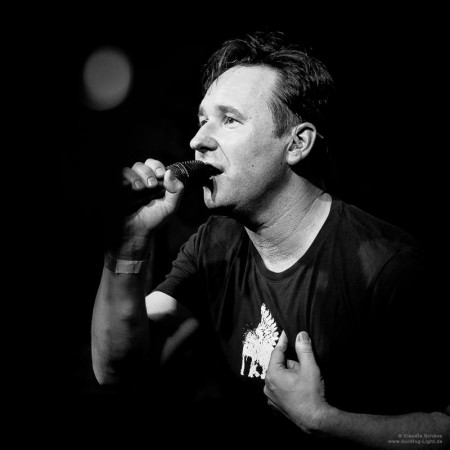

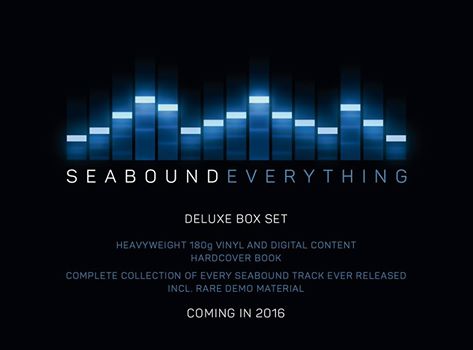
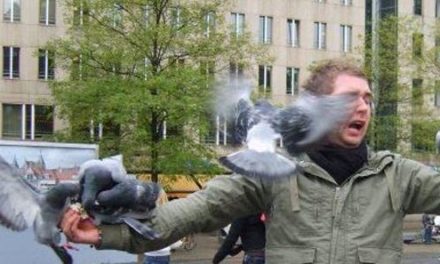
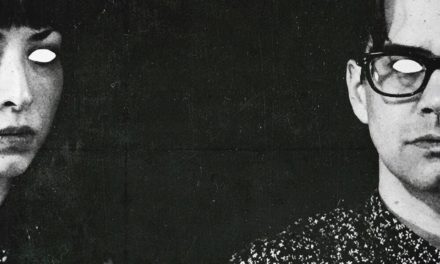
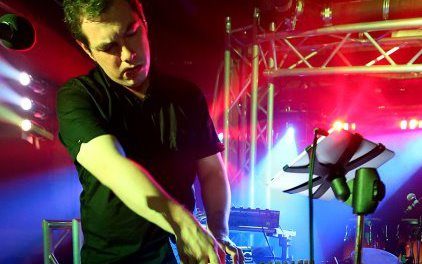
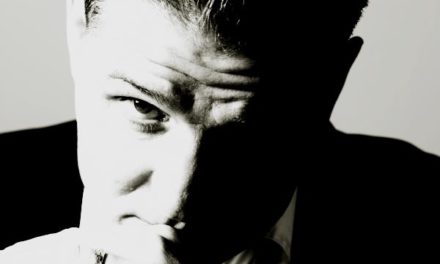
Thanks for posting this!
I feel like Frank Spinath’s lyrics are some of the most interesting in “our thing.” He has a way of singing about deviance (maybe that’s the right word?) in a way that’s isn’t based in serial killer melodrama or end of society manifestos. Often, for me at least, listening to his stuff is like watching a deciding moment of someone’s life through a keyhole. You don’t necessarily have the full context, but you can tell something heavy is going down. It always leaves me wanting to know more of the story and wondering about where he gets it.
Thanks again ID:YD
Seabound are my number one musical influence, and that certainly includes Edge of Dawn and Ghost & Writer, which are brilliantly different. But it’s the sincerity of his words and the images and feelings they evoke. They’re magic
I’ve thought for years that Frank Spinath is the best lyricist in our thing (and possibly beyond), and from reading this he also appears to be one of the nicest.
He was super nice! I have been a long time fan and was honestly pretty nervous asking for the interview. BUT! I shouldn’t have been. He was great.
I sing-screamed at Frank throughout the entire Seabound concert in Jacksonville, FL 2009. :/ He was polite enough to associate with me afterwards.
I’ve been ever-self-conscious since of my concert etiquette and unfortunately neglected my attention to his music. This interview brought me back.